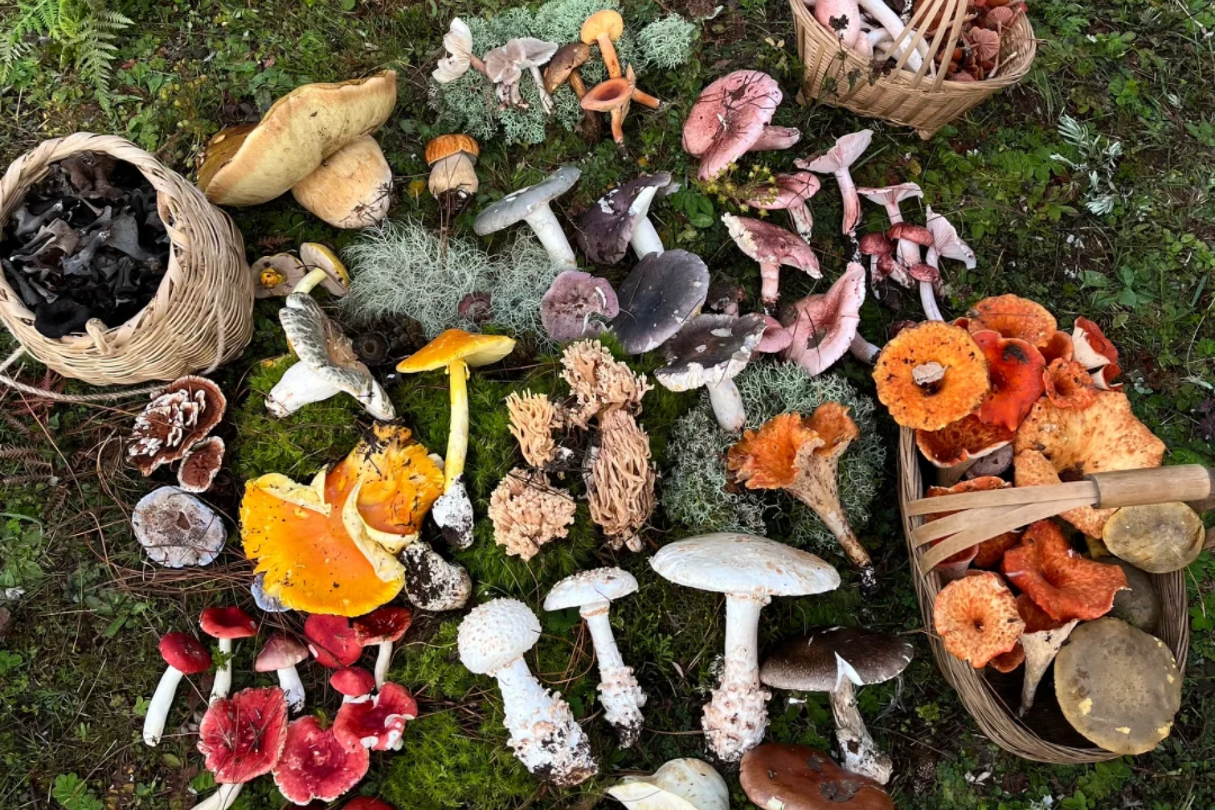China has a zero tolerance approach to marijuana (along with numerous other drugs), yet surprisingly it is the world’s largest producer of hemp, and also the world’s largest exporter of this increasingly lucrative plant. While chances of medical marijuana being legalized in China are seemingly next to none, calls for a clear policy when it comes to industrial hemp and CBD products are increasing — as is the plant’s production in the country.
While cannabidiol (CBD) has become as widely proliferated as over-the-counter painkillers in the West, products using this hemp-derived compound have yet to be seen stocking store shelves in China. The plant it originates from, however, has had a far lengthier history. Ma (麻), the Chinese word for hemp, has actually been in use for thousands of years, widely enough that the classic text Book of Odes, or Shi Jing (诗经), contains many references to hemp use in the daily lives of Chinese people from the 11th to 7th century BCE.
Related:
 Earliest Evidence of People “Getting High” on Marijuana Found in ChinaArchaeologists have discovered ancient pot pots in western ChinaArticle Jun 13, 2019
Earliest Evidence of People “Getting High” on Marijuana Found in ChinaArchaeologists have discovered ancient pot pots in western ChinaArticle Jun 13, 2019
The cultivation of hemp was made illegal in 1985, despite China having a long history with the crop. It was only in 2010, after a push by locals, that authorities again allowed it to be grown on an industrial scale in Yunnan province in southwest China.
Marijuana plants containing the psychoactive agent tetrahydrocannabinol (THC) are to date resoundingly illegal within China — despite what Randy from South Park might think — but plants containing quantities of CBD fall into a grayer area.
As it stands, companies are allowed to farm industrial hemp in Heilongjiang and Yunnan provinces (in China’s northeast and southwest respectively). China Daily reported early this year that talk of farmers being allowed to grow industrial hemp in Jilin province (next door to Heilongjiang), which had begun in 2017, had proven fruitful. Additional sources attest that hemp is also legally being grown in regions such as Anhui, Gansu, and Xinjiang.

Photo: courtesy Hanma Investment Group Co. Ltd.
Figures provided on Hanma Industrial Group Co. Ltd.’s website — one of China’s leading hemp producers — show that half a million hectares of land were used to grow hemp in Anhui province, close to Shanghai in eastern China, in 2014. Other provinces, excluding Heilongjiang and Yunnan, accounted for 0.4 million hectares. Curiously, many media outlets fail to report these facts.
This confusion as to the location of hemp farms in the country is perhaps related to the distinctions of industrial hemp. Industrial hemp is a marijuana plant (cannabis sativa L. subsp. sativa var. sativa) specifically bred to contain the least amount of THC possible, and has a wide range of applications. Industrial hemp is the most commonly farmed hemp strain, although China is home to hemp plants from 33 families and more than 90 genera, including ramie, flax, jute, kenaf, sisal hemp, and abaca.
With that being said, police have historically targeted marijuana plants grown outside of the industry complex. This year, for instance, authorities eradicated 10,000 wild plants growing alongside the Yongding river in Beijing’s Fengtai district.
The mood at the Industrial Cannabis Forum of Listed Companies in mid-August was pragmatic in the face of such continued confusion over regulations in the industry. Participants called for more clearly defined policies on the issues, while Yuan Hua, general manager of Kunming Pharmaceutical Group, said that China’s cannabis industry will need an additional two to three years’ time to establish itself. Her suggestion for companies in the meantime was “research and development,” in order to create new pharmaceuticals and products and lay the groundwork for the future of the industry.

Photo: courtesy Hanma Investment Group Co. Ltd.
With the recent rise in products containing CBD around the globe, Chinese hemp farmers and companies have begun to turn their attention to cosmetics, pharmaceuticals, beverages, and other products that use CBD in some form.
Tan Xin, chairman and founder of Hanma Investment Group Co. Ltd., tells us: “We did a lot of research in the early days and saw that investors like Peter Thiel and George Soros had put money into this industry. We believe this business has huge potential.”
As an example of the potential lucrative nature of this industry, consider that July to late September/early October is usually harvesting season for hemp plants in China. As more companies seek to gain a foothold in this fledgling market — and news of developments like the legalization of industrial hemp farming in Jilin province has spread — stock prices for firms such as Dezhan Health and Meiyingsen have soared this year not only during harvest time, but since the beginning of 2019, prompting international media outlets like The New York Times to sit up and take notice.
Yet in a move that perhaps put a damper on the industry, the Chinese National Anti-Drug Committee published a release in mid-March earlier this year re-clarifying the country’s stance on industrial hemp farming. The release plainly stated that CBD is not included on the list of narcotic drugs in the country, and that it is not a controlled drug. It also stated that marijuana with a THC content of 0.3% or less can be grown in certain parts of China. While this release certainly clarified parts of China’s stance on CBD, it was also vague in many areas and had a negative effect on multiple stocks on Chinese exchanges, prompting investors to sell off.
Nonetheless, people like Tan are optimistic about the future of CBD in the country, particularly in the beauty industry. “Nowadays, CBD is considered an ‘all-purpose ingredient’ [for beauty] in the Western world,” says Tan. “It not only has a therapeutic effect on skin diseases, but is also effective in terms of oil control, acne, and skin whitening.
While research and development for all types of products using CBD is technically legal, only beauty products with CBD are legal to sell in China.
“Since 2015, ‘hemp leaf extraction’ can be legally used in cosmetics,” says Tan. “And because the cosmetics industry is so huge in China, we have a good shot in this business.”
He adds however that pharmaceuticals and health products remain the company’s biggest priority at the moment.

Photo: courtesy Hanma Investment Group Co. Ltd.
All of this points to the crux of China’s argument for the widespread legalization of industrial hemp farming and CBD use in medicine: health.
Many tout the benefits of CBD in treating conditions like epilepsy and Alzheimer’s, as well as providing pain relief, though research on some of these claims is as of yet inconclusive. According to a report by Global Times, China holds 309 of the world’s 606 hemp-related patents, but due to legal restrictions, Chinese-made food and medicine containing CBD can only find a market outside of the country, in places like the US and the EU.
As Tan puts it, “the hemp industry is a health industry. Nothing will keep us from the pursuit of health.”
Header image: Jose Luis Sanchez Pereyra via Unsplash


















